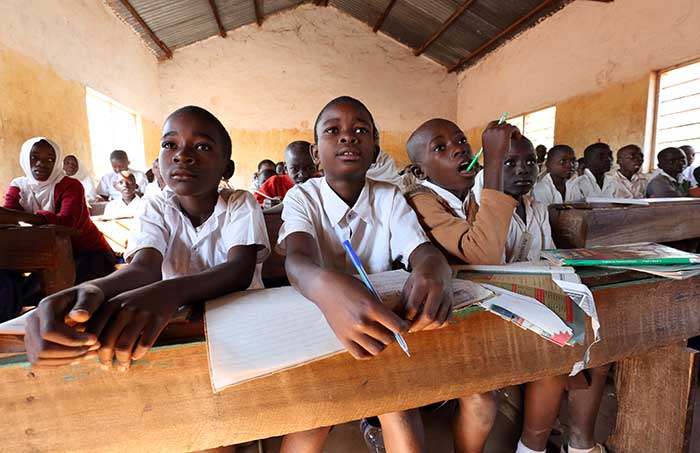web_schoolafrica_shutterstock_315777626.jpg

Children in school
On current trends, the world will achieve universal primary education in 2042, universal lower secondary education in 2059 and universal upper secondary education in 2084. This means the international community will overshoot the sustainable development goal of 2030 by half a century.
Poor countries are most affected, with Niger, Rwanda and the Central African Republic among 11 nations not expected to achieve universal primary education until 2100.
The UN’s education, scientific and cultural agency’s Global Education Monitoring Report 2016 has also revealed that only 64 countries out of the 157 that were tracked will meet the millennium development goals in education. These call on governments to ensure that every child in the world receives a primary education by 2015. According to the report, not one low-income country met the target.
However, rich countries are not on course either. UNESCO found that even at the fastest rate of progress ever seen in the region, 1 in 10 countries in Europe and North America would still not achieve universal upper secondary education by 2030.
The report stressed the importance of education in developing economies. In low income countries, universalising upper secondary completion by 2030 would increase per capita income by 75% by 2050 and bring poverty elimination forward by 10 years.
Director-general of UNESCO Irina Bokova, said: “A fundamental change is needed in the way we think about education’s role in global development, because it has a catalytic impact on the wellbeing of individuals and the future of our planet.”
She added: “Now, more than ever, education has a responsibility to be in gear with 21st century challenges and aspirations, and foster the right types on values and skills that will lead to sustainable and inclusive growth, and peaceful living together.”













